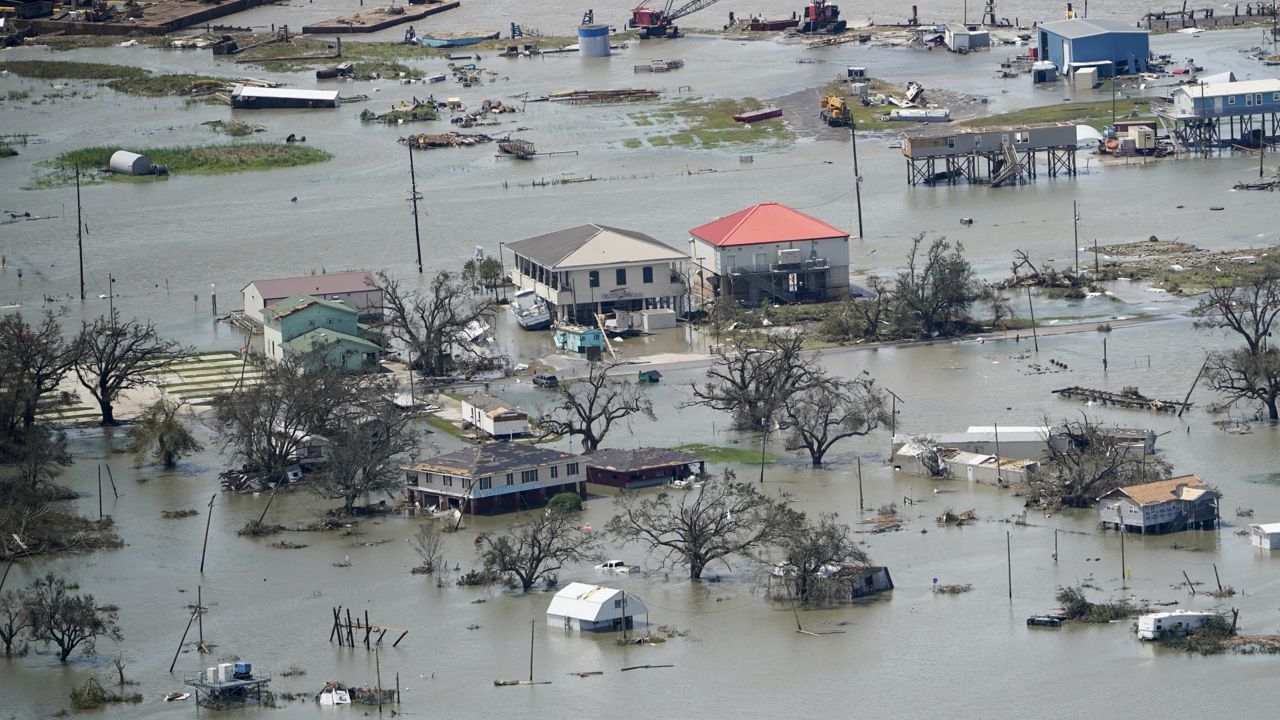As climate change continues to spur more natural disasters, a new study found that Black Americans are likely to bear the brunt of the risks associated with floods over the next several decades.
The study, published in the journal Nature Climate Change on Monday, found that the United States faces a 26.4% increase in costs from severe floods by 2050, up from around $32 billion to more than $43 billion over the next several decades.
Those floods – spurred by a changing climate and made more dangerous by potentially inaccurate models – will likely become most intense in the Atlantic and Gulf Coasts, researchers found.
Current floods pose the greatest risks to predominantly white communities with high rates of poverty in the Appalachian region, particularly in West Virginia. The study’s model found “a largely different trend in demography compared with who bears present-day risk.”
“Areas with high Black population proportions are clearly concentrated across the Deep South, in the very locations where climate change is expected to intensify flood risk,” the authors wrote in part. “Urban and rural areas alike from Texas through Florida to Virginia contain predominantly Black communities projected to see at least a 20% increase in flood risk over the next 30 years.”
Regions where at least one-fifth of the population is Black will likely face a 40% increase overall in flooding risk.
The reasons for the shift in demographic risk is due to a number of factors, driven by a warming climate. The country’s average temperature has risen around 1.8 degrees Fahrenheit in the past century-plus, which experts say has exacerbated flood-causing events like heavy rainfall, early snowmelt and flash foods.
One study conducted by the National Oceanic and Atmospheric Administration in 2016 found that human-related climate warming increased the torrential amount of rain unleashed in Louisiana by at least 40%. At least 30% of the state population is Black, and were particularly hard-hit nearly a decade prior when Hurricane Katrina swept through New Orleans in 2005.
According to a June 2020 piece published in Scientific American, four of the seven ZIP codes that suffered the most damage from the storm were predominantly Black communities.
Monday’s study emphasized the need to modernize infrastructure to prepare for more serious weather events, saying in part that there is a “dearth of flood resilience in the United States.” The study’s authors encourage both federal and local governments to reexamine flood zones and regulations in accordance with the most up-to-date data before more disasters occur.
The Biden administration has taken at least one step in an effort to mitigate the costs associated with climate change.
On Monday, the Department of Housing and Urban Development laid out new guidelines for the disbursal of $2 billion in disaster-relief block grants, with an emphasis on climate-change mitigation and equity for underserved communities.
The new guidelines, published Monday in the Federal Register, spell out specific priorities for the use of the funds by state and local agencies that receive the Community Development Block Grants.
The funds were allocated last year to aid in relief efforts for disasters that took place in 2020 in 10 states and territories. These include: wildfires in California, a dam collapse in Michigan, Hurricane Zeta in Mississippi, and earthquakes and Tropical Storm Isaias in Puerto Rico.
These block grants traditionally come with a great deal of flexibility for local authorities and recipient agencies to decide where best to target the funds depending on the nature of the disaster. For example, wildfires tend to largely destroy buildings and residences, while storms and hurricanes often do the most damage to infrastructure like bridges, sewers and electrical grids.
Most of that flexibility will remain, but HUD is now directing recipient agencies to prioritize long-term environmental resilience and serving traditionally marginalized populations. The guidelines have been largely expected, and HUD Secretary Marcia L. Fudge spoke of these specific priorities when the grants were first announced in November 2021.
Fudge said at the time that the disbursal of the funds would reflect President Joe Biden's emphasis on “addressing climate justice in hard-hit communities,” and "building long-term and inclusive resilience to the impacts of climate change, particularly for underserved and marginalized communities.”
HUD spokesman Michael Burns said the agency is defining underserved communities as areas that “were economically distressed before the disaster” and populations that “have been systematically denied a full opportunity to participate in aspects of economic, social, and civic life.”
The Associated Press contributed to this report.



